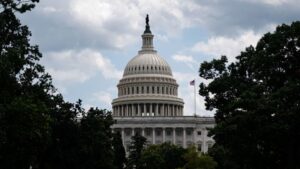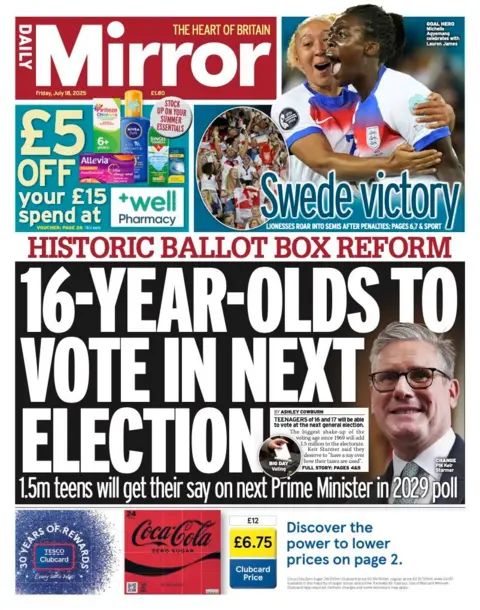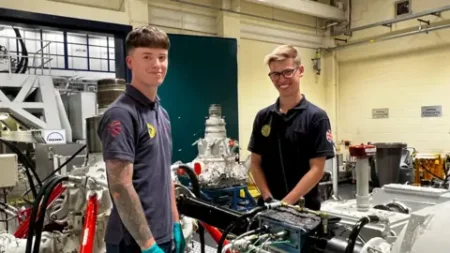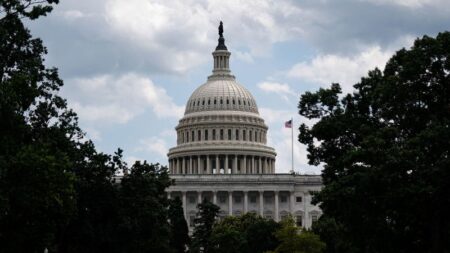In the latest political landscape of the UK, significant media attention has been focused on two major issues: the proposal to allow 16 and 17-year-olds to vote in the next general election and the suspension of Diane Abbott from the Labour Party. These topics have sparked intense discussions across various platforms, highlighting the potential ramifications for both the Labour Party and the wider political scene.
The Prime Minister’s initiative to lower the voting age has been defined by numerous outlets as a “historic ballot box reform,” with the Daily Mirror leading the charge in this description. The push to enfranchise younger voters comes with a promise that it will modernize the democracy of the United Kingdom. The plan potentially affects around 1.5 million young individuals, allowing them to exercise their voting rights in future elections. The Daily Telegraph, however, voiced skepticism towards this initiative, quoting Nigel Farage, the leader of Reform UK, who suggested that it represents a bid to manipulate the electoral process. The paper cautioned that Labour’s strategy might backfire, particularly if newly enfranchised young voters choose to support rival parties, including the Greens or a re-emergent hard-left contingent led by Jeremy Corbyn.
Meanwhile, the ongoing suspensions surrounding Labour’s Diane Abbott, who was recently removed from the party for a second time for her controversial remarks regarding racism, have underscored the party’s increasing strictness on internal discipline. The Guardian reported her latest suspension as part of a broader initiative by leader Sir Keir Starmer to maintain a firmer grip on party members’ statements. This move aims to instill a semblance of order within Labour following prior dissent from MPs concerning welfare cuts.
In a broader context, the implications of these unfolding events suggest a shifting dynamic in British politics. For instance, pollsters indicate that fewer than one in five young people are committed to voting, which raises questions about the efficacy of Labour’s proposal to lower the voting age. The ramifications of this strategy are being closely monitored, with the potential to significantly reposition the party’s base of support among younger demographics.
Additionally, the media is rife with varied interpretations of current events. While some outlets, including the i Paper, speculate that the Prime Minister’s strategy might serve to benefit the Labour Party amidst rising support, others echo Farage’s sentiments by expressing concern over possible electoral manipulation. Critics and supporters alike are engaging in a heated debate over whether this change is a genuine attempt to engage young voters or a calculated move to shore up party support in light of looming elections.
Furthermore, the intersection of current events such as the anticipated doctor strikes—which could lead to potential negotiations on direct pay adjustments—and additional controversies such as Abbott’s comments showcase the layered complexities of today’s political climate. The Times highlighted an important aspect regarding ongoing negotiations for healthcare professionals, indicating that maintaining staffing levels is critical amidst potential unrest.
As for public safety measures, the Daily Mail reported police’s intentions to employ facial recognition technology at the upcoming Notting Hill Carnival. This signals a shift in how law enforcement is responding to public events, focusing on new technological solutions to combat crime.
Each of these stories brings forth nuanced discussion points critical to understanding the social and political dynamics at play in contemporary British politics. Whether regarding voting age reforms, internal party discipline, or the use of surveillance technology, these topics are indicative of an ever-evolving electoral landscape, inviting keen scrutiny and debate among citizens and commentators alike. As various media outlets report on these unfolding narratives, one thing remains clear: the stakes are high, and the outcome of these developments could reshape both the Labour Party and British democracy moving forward.











